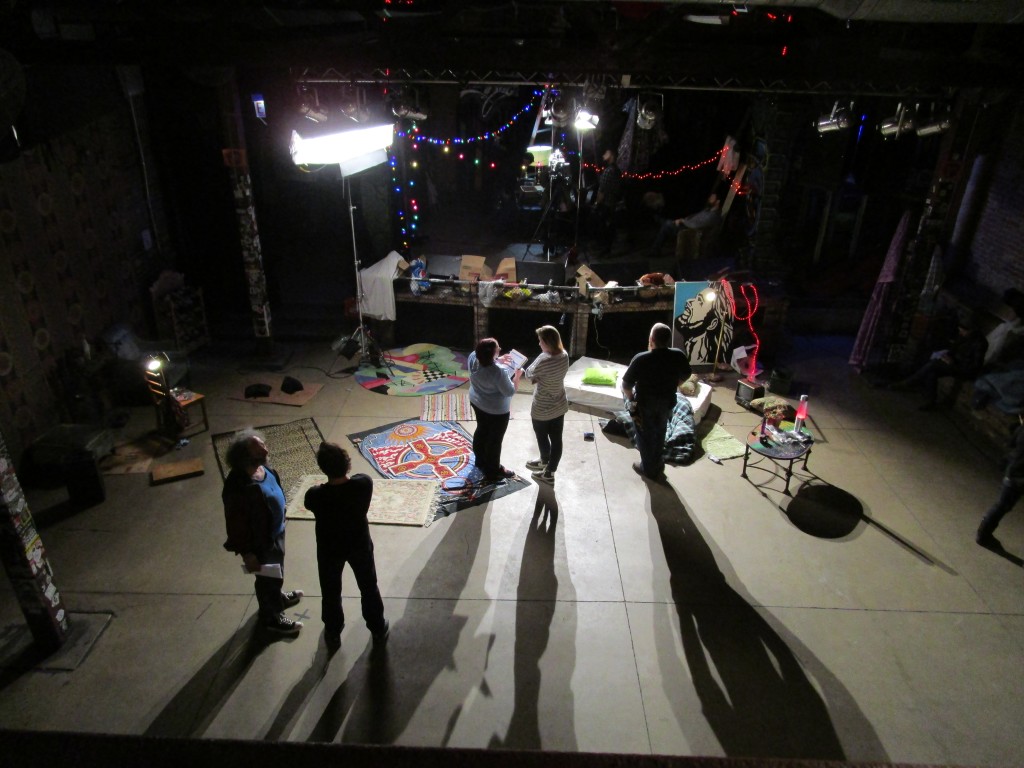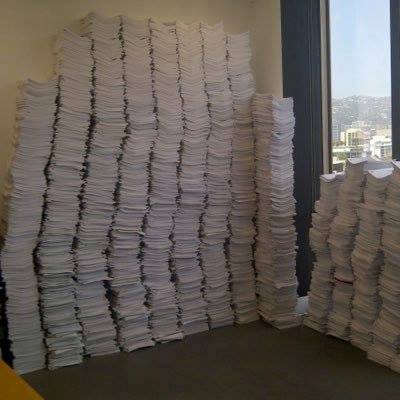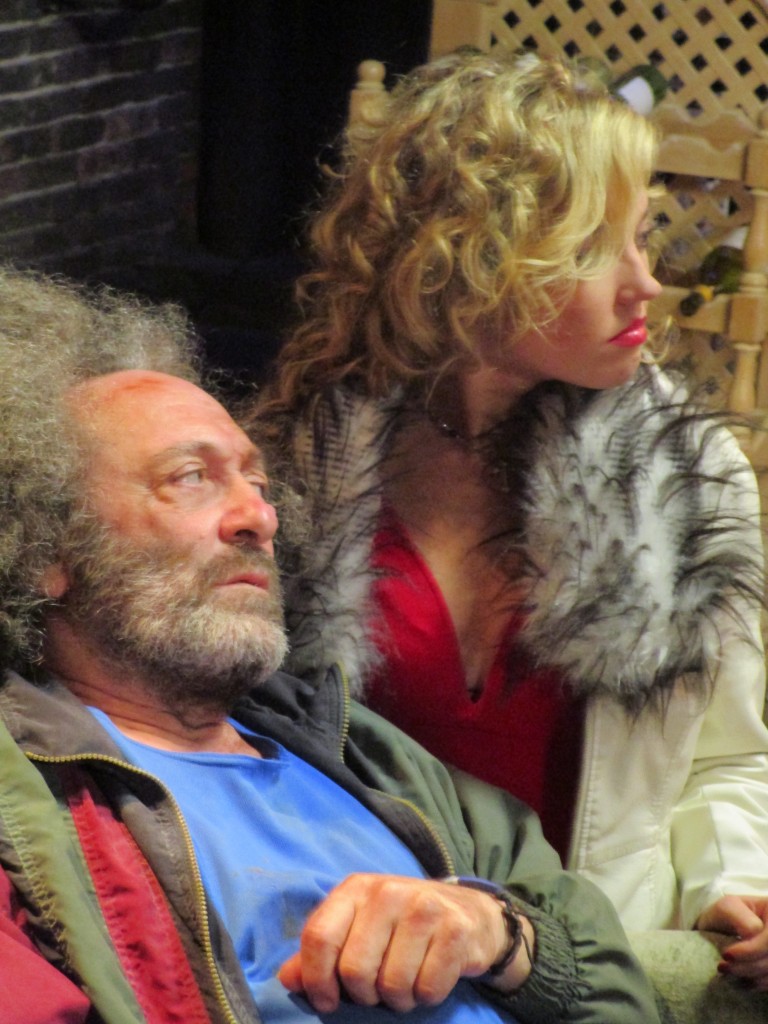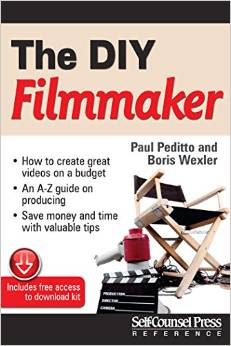
Just started a new web series class at Chicago Filmmakers so thought I would pull out this post from back in the day about some how-to’s in making your web series.
Why make a web series?
Because you want to be proactive.
I’ve said it many times over the 11 years+ of this blog. Make something happen. Something smaller. Something that gets you noticed. Maybe a short film. Maybe a web series.
If you’ve been around you know the Jane Doe saga, documented here. Also the micro-budget feature Chat, which you can find iTunes, VUDU, and elsewhere.
Most importantly concerning this post, I’ve written and produced two web series– Devolve and Pillow Talks. I’ve written about Devolve before, here and here.
I wanted to do a post about the Business side of Web Series for those considering making one.
I created online Second City classes on both Writing the Web Series and Producing. Spent 50+ hours combing through the WGA Hotlist, WebVee reviews, YouTube, and Snobby Robot articles seeking out web series that were funny –and trust me, that meant filtering through dozens of hours of UNfunny web series. I did this to help find some stuff that will help in getting your web series made.
A THOUGHT OR TWO TO GET YOU EXCITED
Looking at this list from Script Pipeline, you’d think it’s the Golden era of screenplay sales–even though LA production has been halted for monthes(*time of this writing, June). Do note, this is script sales, not spec script sales. Spec is probably how you’re writing yours; nobody paying you up front, no packaging deals come from your hot-shot agent. How many unknowns are selling scripts right now? Google spec screenplays 2020 and you’ll find zero answers.
According to Go Into the Story, know how many spec screenplays sold last year? 32! Sad, right? Look here. How many thousands of writers registered and copyrighted scripts? That puts your odds at selling a spec screenplay at what, about 1,000+ to 1? Plus most, if not all, those 2019 spec sales were made with agent or manager representation. So if you’re not repped, the odds against you are higher. Production company offices have screenplays stacking up like this….

Wow, hey Peditto, stop cheering me up! All this doom and gloom!
But actually, it’s not doom and gloom at all. If...
If you’re not trying to start your career by walking through the front gate of Paramount studios.
If you’re willing to try a different approach, writing and producing something smaller, cheaper, DIY all the way. The Web Series.

There is precedent in film history. Low-budget movies have been around since William K.L. Dickson filmed Fred Ott’s Sneeze in 1894. Skipping decades, John Cassavetes made films for low money. So did Orson Wells, who made bad wine commercials to finance his low-budget Shakespeare adaptations. Robert Rodriguez literally wrote the book, and major directors like Spike Lee and Aronofsky got their starts on the cheap. Credit-card filmmaking has been around forever, the watchword being film making. These early low-budget efforts were all shot on film— which brings us to what is new in the equation: Technology.
Start with great digital cameras for shooting low budget film and web series. For more detail, look here. For instance…
- Sony a5100.
- Sony a6500. …
- Panasonic G85. …
- Sony ZV-1 …
- Sony RX100 VII. …
- DJI Osmo Pocket Gimbal. …
- Panasonic GH4. …
- Nikon D3500.
If you’ve never made something, it’s intimidating! I get it. But I swear that you can do this. It’s just about being proactive; doing something while you wait for the phone to ring from that agent-manager-production company.
So, let’s consider the web series…
THE STATE OF WEB SERIES TODAY:
“Of the seismic cultural shifts that occurred in 2016, Hollywood finally embracing web series may be a tiny victory. But try telling that to the creators (a more succinct term for the writer-director-producer-actors thriving in the medium) who have turned their scrappy little web series into big-budget television deals.
Like Issa Rae, creator of the long-running YouTube series “Awkward Black Girl,” who just received a Golden Globe nomination for her new HBO show, “Insecure,” a vibrant comedy that puts black women front and center.
Or Ben Sinclair and Katja Blichfeld, the married co-creators who successfully adapted their web series, “High Maintenance,” for HBO. The stoner comedy that raised the bar for online storytelling preserved its indie charm; the six episodes of elegantly-woven vignettes held true to the spirit of the first online episodes, as each revealed little surprises in the lives of believable characters.
2016 also brought us a most auspicious Cinderella story: “Her Story,” a romantic drama about the loves and lives of two trans women (co-created by Laura Zak and Jen Richards — Richards is trans), was nominated for an Emmy in the first year the Television Academy recognized short form content.
Established stars are also embracing web content, flourishing with the creative freedom afforded by digital production companies thirsty for content. Streaming sites like Crackle and Seeso give top comics carte blanche for their wackiest ideas, and Ron Howard and Brian Grazer’s New Form Digital seeks out and develops emerging talent. Jerry Seinfeld’s “Comedians In Cars Getting Coffee” has been a surprising success, garnering three Emmy nominations. It’s probably not enough to get his guests to stop making fun of him for doing a web series, but it’s a start.”
I know this is article is a couple years old, but I love the enthusiasm of it.
Want a good reason to write a web series?
It can be shot micro-budget. What is micro-budget? My own definition is: When the full amount of pre-production, production, and post-production comes out of your pocket—meaning self-financed, from friends, family, Kickstarter contributions, grants, fundraisers… If the budget is controlled by you exclusively, it’s micro.
How do you write your web series for micro-budget? We discussed that last class, but a quick list of suggestions would be…
- Think like a producer. Get on a set and see how it runs. Learn what costs money. Be aware of money from the first page of the first episode.
- Limit locations
- Limit characters
- Limit visual effects (VFX), blood effects, and/or stunts
- Write longer dialogue scenes
- Write locations & resources available to you for free
- Beware over-reliance on post-production digital solutions (“fixing it in post”)
- Beware writing in weather conditions and seasonal issues(i.e. snow, rain)
- Don’t write in children or animals if possible
- Avoid exterior night shots or locations you can’t control
- Avoid special prop or makeup needs.
- Never write the web series to cost more money than you raised.
- If humanly possible, write it so you pay for NOTHING.

CHARACTER WRITING FOR NEW MEDIA
Please check out what this article by Snobby Robot has to say about writing characters for New Media. Writing the fewest number of characters is vital to you making your series. Here’s a snippet:
“Earlier I mentioned how long running television has become an ideal format for developing great characters. While the web is focused on short content there is no reason that a web series cannot delve deep into characters. The formatting may be different but the web allows creators to go back to characters again and again. If anything, while we have not seen it yet, the web could usher in a new golden age of great character focused story telling.
Lastly I think it is important to discuss the nature of new media. Today there are no longer ‘filmmakers’ or ‘screenwriters’ in the traditional sense. It’s not that those jobs do not exist, it is that for those not yet ‘in’ those jobs the web is the only way to go. The great thing about online content is that it is nondenominational, it is not format exclusive. The web can play video, display text, and interact with the user. The web allows for the ultimate form of expression in virtually any format an artist chooses. When I look at storytelling and the web in that light it becomes clear that the prevailing way for telling stories has not yet been completely developed.”
PRODUCING STARTS WITH THE WRITING
- You outlined the story.
- You wrote the episodes.
- You got notes from your “inner circle” of friends who you trust not to bullshit you
- You rewrote the episodes with production realities in mind, like how much you can actually raise, etc. Not much point writing ten 20-page episodes if you only have the money to make five 5-page episodes.
Now start asking the brutal questions:. How long are the episodes? How many? Are they mostly dialogue? Single scenes or multiple locations? How much money have you raised? How many freebees can you call in? Do you have previous production experience? How many hats (producer-director-writer-actor) will you be wearing?
This is how it begins. You can’t make that 5 million budget thriller you wrote. But you can stir the pot. You make something else. You get a creative project out there and pray that you have more than an ounce of talent. You spend low money and make a web series. Try to nab tens of thousands of subscribers who will pay .99 cents to see your latest episode of Croissant Man. Maybe just ONE of that 10,000 is an agent who recognizes your talent and asks, “what else you got?” You’re not waiting any more. You’re done with that. You’re making something–NOW.


